The Independent's journalism is supported by our readers. When you purchase through links on our site, we may earn commission.
Bangkok city guide: Where to stay, eat, drink and shop in Thailand’s flavour-packed gateway
The modern metropolis stands tall as a cultural capital of the world, with cutting-edge food, glamorous sky bars and suitcase-filling shopping to match, says Lucie Grace

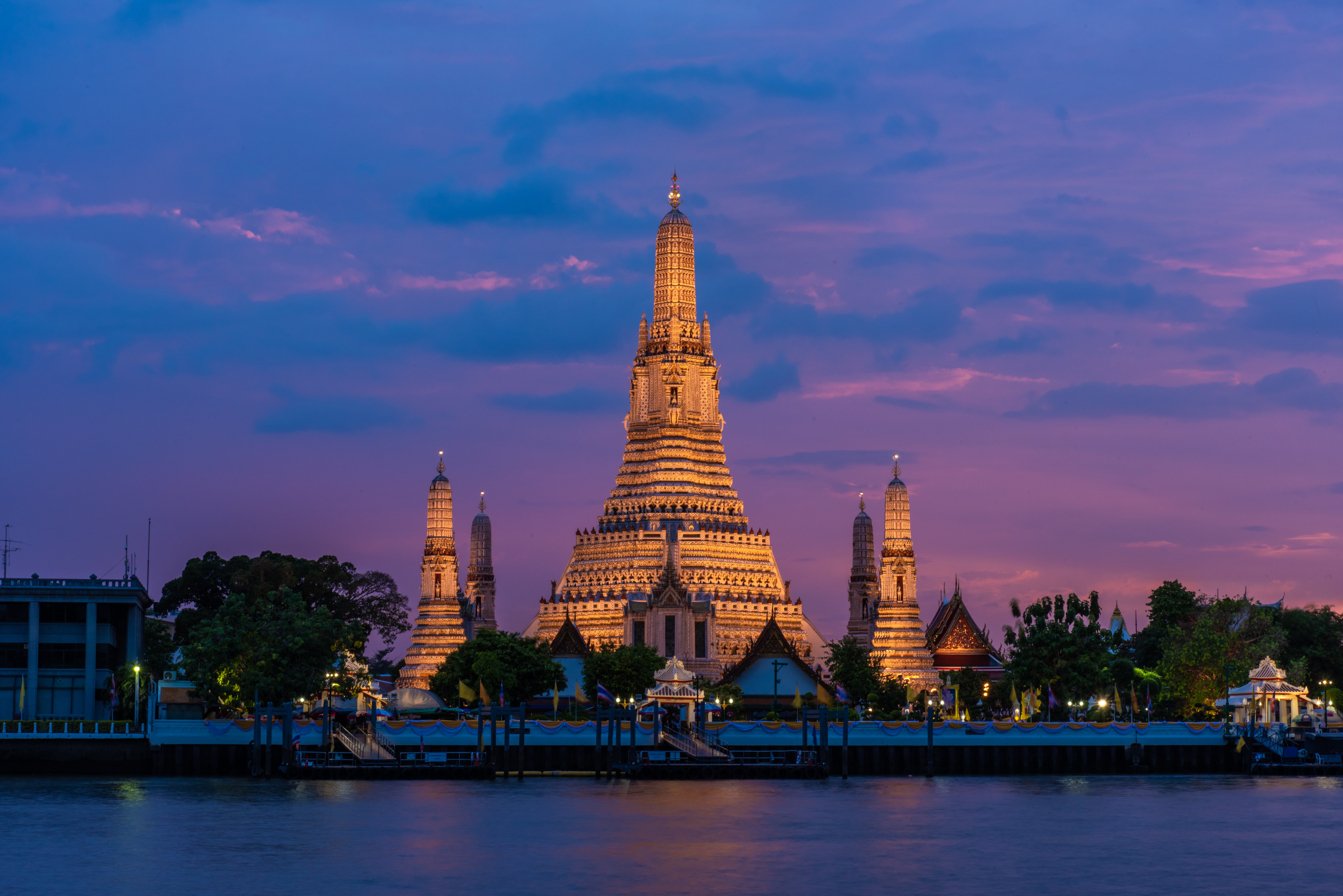
Your support helps us to tell the story
This election is still a dead heat, according to most polls. In a fight with such wafer-thin margins, we need reporters on the ground talking to the people Trump and Harris are courting. Your support allows us to keep sending journalists to the story.
The Independent is trusted by 27 million Americans from across the entire political spectrum every month. Unlike many other quality news outlets, we choose not to lock you out of our reporting and analysis with paywalls. But quality journalism must still be paid for.
Help us keep bring these critical stories to light. Your support makes all the difference.
Bangkok’s vastness and undeniable humidity can overwhelm the unsuspecting visitor, so take your time when exploring and allow it the opportunity to unravel for you. Four days are better than just one or two.
With a population of 10.7 million, Bangkok – or Krung Thep Maha Nakhon as it’s officially known to Thais – has grown from a bustling, multicultural trading port to a heavy hitter on the world’s cultural landscape. It’s now as famed for its food, traffic and nightlife as its temples and history, with an art scene to watch.
There’s no denying that this city divides opinion. People tend to either love its buzz and stay for years, or hate the frenetic pace and leave as soon as possible, but make up your own mind in its broad parks and slender alleys in between stopping at the sights. Unlike most huge cities, the Thai capital is a friendly place with a pleasantly low crime rate, where you can unwind and enjoy your arrival in the ‘land of smiles’.
What to do
A right royal welcome
Thailand is very serious about its monarchy and there’s nowhere to get a better sense of this than Bangkok – or, more specifically, its Grand Royal Palace complex. Established in 1782, when the capital of then-Siam was relocated to the area, the ornate structures include the royal quarters (which are only viewable from the outside but are nonetheless very impressive) and a stunning wat (temple) that was built to accommodate the infamous and slightly mysterious Jade Buddha, a totem that’s the real star here. There’s also a swish textiles museum that displays Queen Sirikit’s wardrobe and an epic antique batik collection amassed by King Rama V. You can whizz round in a couple of hours, but a half day is more leisurely.
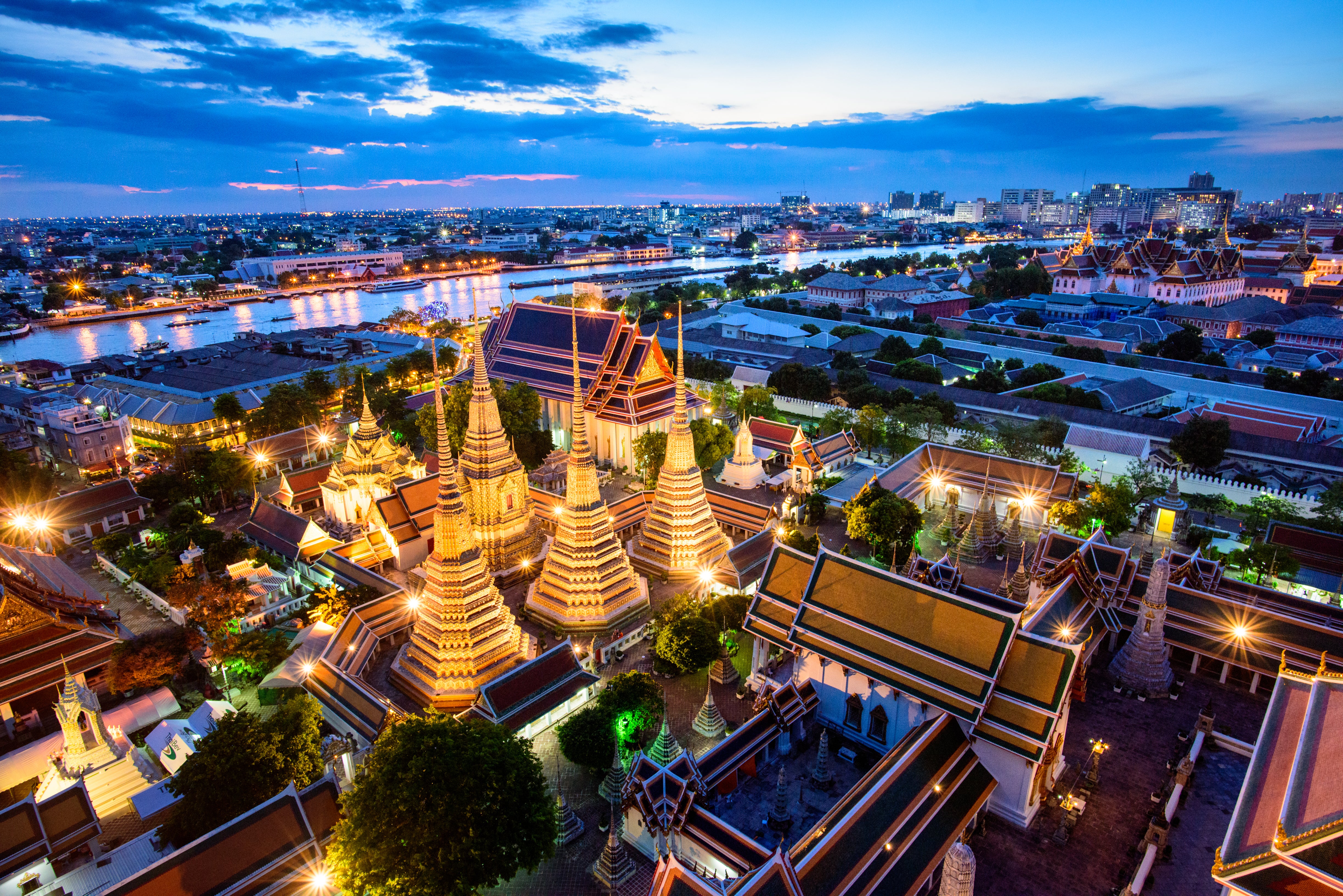
A trio of temples
While they may not be the oldest in Thailand, Bangkok’s wats – devoted to the predominant national faith of Buddhism – are dazzling. Be sure to visit in appropriate attire, with your shoulders and knees covered, and remember not to turn your back or display the soles of your feet towards any Buddha icons. The three unmissables are Wat Arun, with its mosaic-coated, tall-spired stupas; Wat Pho, home to a colossal, golden reclining Buddha statue and the cemetery of the Kings; and hill-top Wat Saket, one of the oldest structures in Bangkok that predates the city’s foundation and is a busy pilgrimage site for Thais from across the country.
Dig into the arts and culture
Bangkok has some great cultural institutions displaying everything from ancient treasures to the freshest of fresh art. Nothing gives hints of the issues and cares of modern Thailand like its contemporary artwork, so visit one of its newer art spaces, such as MOCA (Museum of Contemporary Art), BACC (Bangkok Art & Culture Centre) or the smaller SAC (Subhashok Arts Centre) to take in one of the edgy, temporary shows and get a feel for the political climate that the tour guides won’t tell you about.
The Jim Thompson House Museum is another must-see. The former home of an American merchant and architect, who disappeared mysteriously in the Malaysian jungle, is chock full of antiques and artwork from ancient Siam. Elsewhere, local history museum with a twist the Siam Museum is highly enjoyable for its ingenuitive displays and meditations on what it is to be Thai.
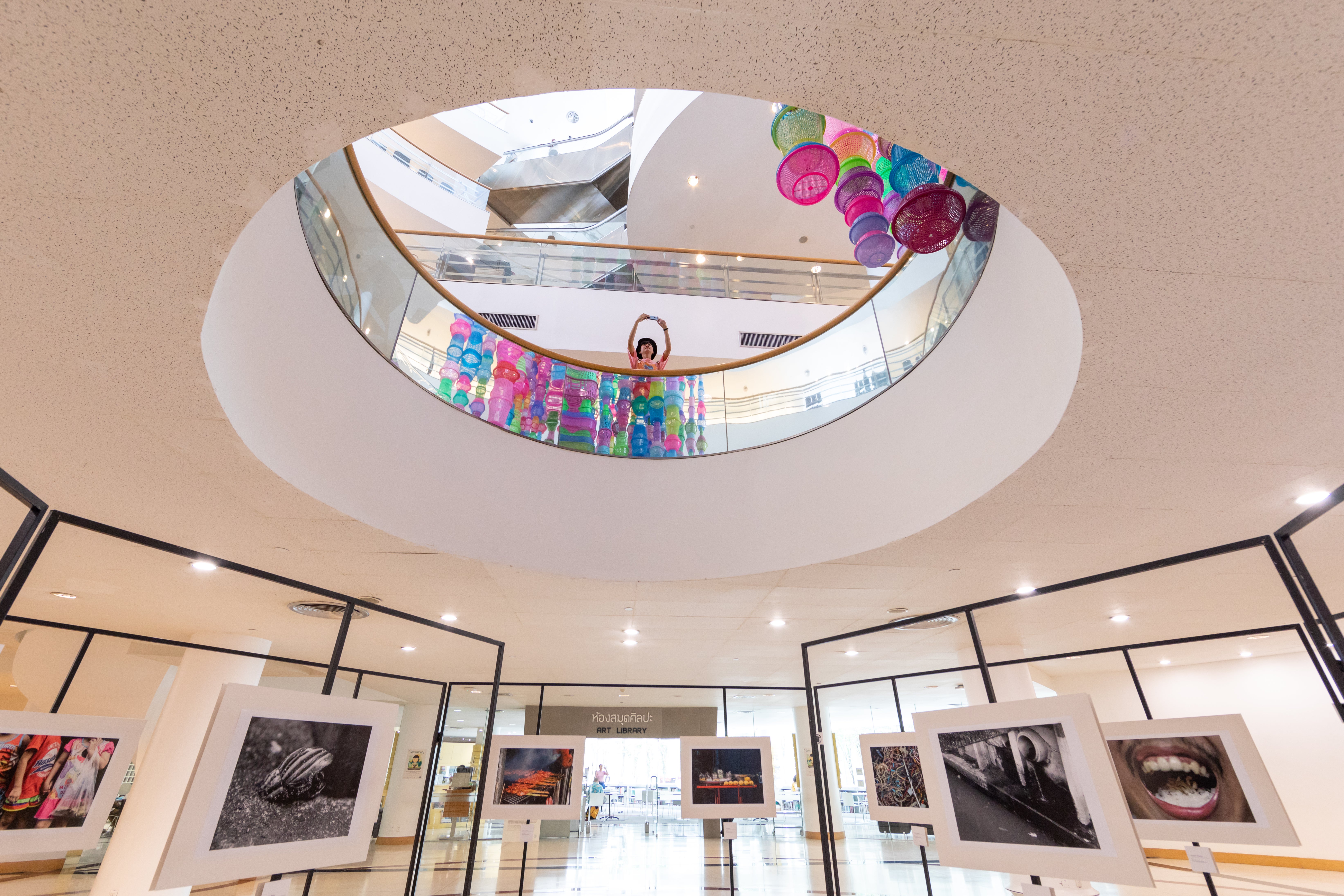
Fight night
Whether you’re a boxing fan or not, getting to watch a match at Rajadamnern Stadium is a real treat. The site has been hosting Muay Thai kickboxing tournaments since 1945 and is the best place in the country to watch the sport-meets-artform, with pros from across the world throwing their punches. Match nights are currently two or three evenings a week, with tickets available online or on the door (but check times and dates in advance).
Where to stay
Bangkok is colossal, so it’s wise to do some research and select a target neighbourhood before going ahead and booking accommodation. There are some charming options in the old town, such as light and airy Red Door Heritage Hotel. Doubles from £45, room only. reddoorheritage.com
In the same area is the more luxurious 1905 Heritage Corner, which goes all out to transport you back in time to Old Siam in all three of its boutique rooms. Doubles from £90, B&B. 1905heritagecorner.com
Ratchathewi is a great area to stay in if you’re keen to be on the SkyTrain route (good for both airports as well as wider city exploring). It also puts you equidistant between the old town and nightlife hub Sukhumvit. Here the Bangkok Oasis Hotel is an oasis by name and nature; these smart digs are surrounded by lush gardens, providing the perfect respite from the busy streets outside. Doubles from £30, room only. bangkokoasishotel.com
Nomads and backpackers will love the Quarter Bangkok Ratchathewi Poshtel & Coworking, which does what it says on the tin, with classy decor and a great cafe downstairs. Private rooms from £80, room only; cheaper dorms also available.
If this is a special occasion trip and you’re aiming upmarket, the W Bangkok is based in the financial district of Silom, which is full of chic eateries and bougie spas. It is as swanky as you’d expect from an outpost of the hip W chain and is surprisingly affordable thanks to the southeast Asian location. Doubles from £110, B&B. marriott.com/en-us/hotels/bkkwb-w-bangkok
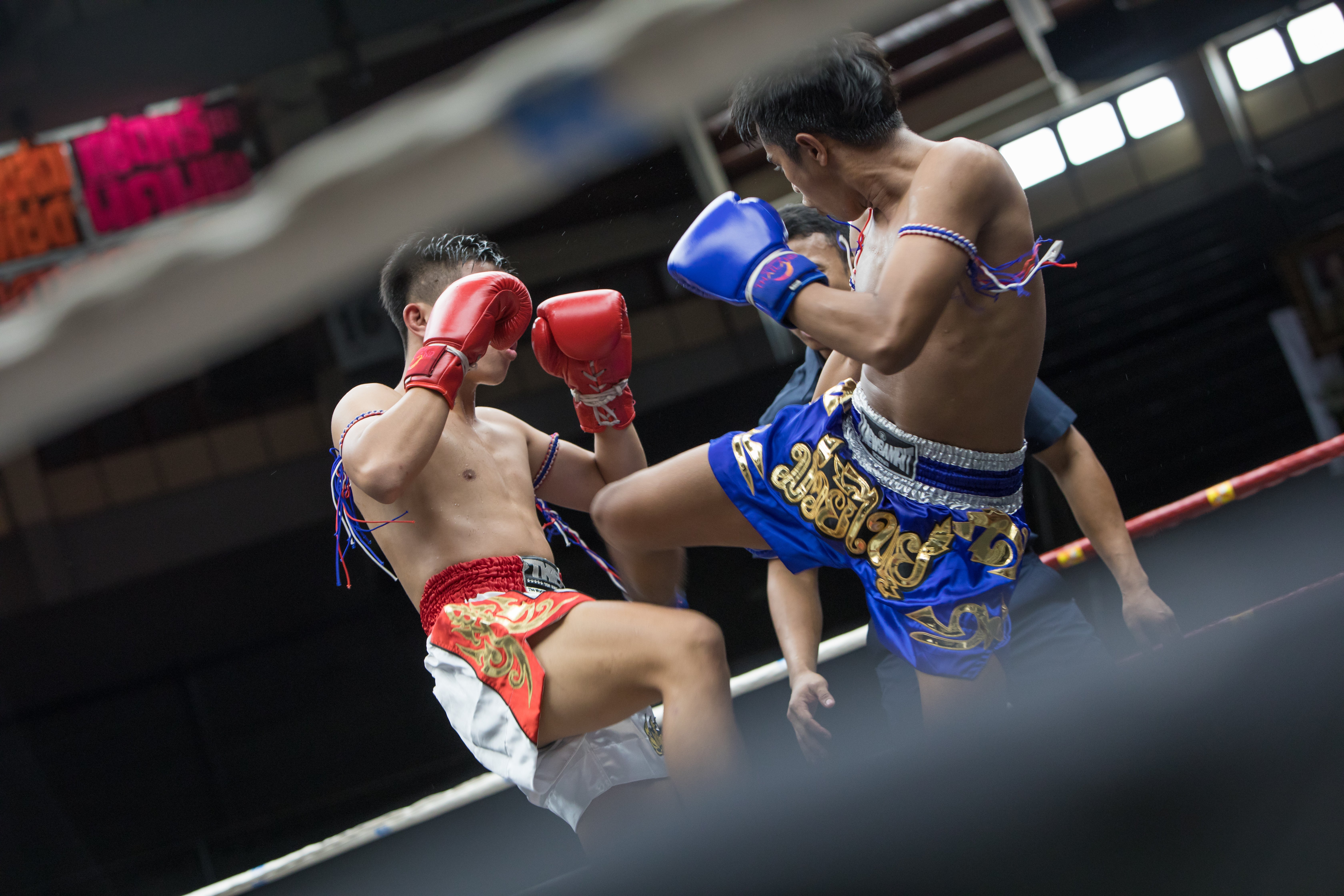
Where to eat
Bangkok is not known for its brunch scene, with most tourists taking breakfast in their hotels. That being said, the No 1 for late morning grazing is expat’s favourite Toby’s on Sukhumvit 38, where the chef poaches eggs like nowhere else in the city, and coffee is served on a leafy outdoor terrace. If you’re just after a quick bite, duck into one of the delectable bakeries, including branches of Holey Artisan Bakery and the aptly named Brioche from Heaven.
While you’re on the move, tuck into Bangkok’s world-renowned street food for lunch. The best in the city can be found on Chinatown’s Yaowarat Road, Tha Pra Chan district and the Banglamphu district. All three are satellites of the old town and have vendors and small restaurants that have been serving noodle soups for centuries. Sweet tooths should ask for kanom buang, a crispy pancake, or khanom krok, delicious coconut griddle cakes.
If you’re an early diner, make a bee-line for Jay Fai in the old town – you’ll smell the wafts of mouthwatering fragrances brewed by Jay Fai herself as you approach this Michelin-starred canteen. Wait times can be up to an hour (swing by to put your name down before exploring nearby). Top tip: try the crab omelette (you’re welcome in advance).
For traditional Thai dishes with a sophisticated twist check out Rongros, a riverside eatery with views of Wat Arun tucked down an alley near Wat Pho, where the rib-eye green curry will blow you away. Or, for a taste of Thai-Chinese fusion, don’t miss the new star in town, Restaurant Potong, set in an artfully renovated building in Chinatown where Chef Pam is making waves with her fine dining menu.
Where to drink
Thai iced coffee is very popular with visitors and locals alike and plentiful in Bangkok, which is brimming with great coffee spots. The Craftsman Roastery in the old town is a trendy haunt with exposed brick and strong coffee, Piccolo Vicolo Cafe in Ratchathewi is a spacious, plant-filled atrium of caffeinated bliss and the Bangkok branch of Gallery Drip Coffee is set within the sleek environs of the BACC gallery.
Bangkok’s 24/7 nightlife hasn’t quite returned post-pandemic, due to laws and restrictions surrounding opening hours, but many a top choice bar is soldiering on with a 1am curfew, and locals expect restrictions to ease in the coming months. The best of the best is Smalls, a much-loved jazz bar in the south of the city with a relaxed ambience and cool decor, awash with fabric drapes and quirky art.
Across town in Sukhumvit you have Havana Social, one of the area’s finest, playing Latin music in a Cuban-themed space. If you’d prefer the open air, Beer Belly is the top choice beer garden, selling a very wide range of beers on draught. If you’re feeling fancy, Rabbit Hole has one of the most extensive cocktail menus in the city, with dark, moody interiors and a lot of love and care put into the menu. For the ultimate Bangkok vista, make a booking at Octave, the rooftop bar on top of the Marriott Sukhumvit. Spread over three floors, the 49th floor is the most impressive, with views that erase all memory of the substantial drinks prices.
Nightclubs and after-hours action is still on hold, with few venues returning as yet (and the brave ones who have closing around midnight). One such, Sing Sing Theatre, is a fun night out, with live music and DJs that go on until 1am at weekends.
Where to shop
Bangkok is a shopper’s paradise; from its gargantuan malls to labyrinthine markets, it’s easy to spend days browsing. If it’s malls you’re after, head to Rama I Road and get lost in Siam Discovery, Siam Paragon, Siam Centre and Siam Square One: adjoining malls where you’ll find everything from Balenciaga to Boots the Chemist.
For a more authentic Thai experience check out the startlingly large Chatuchak Market (also known as JJ Market), home to over 5,000 stalls that are loosely organised into areas including plants, used clothing and new clothes, shoes, kitchenware, musical instruments, silks and textiles, woodcarving, art and painting, books, leather goods, dried foods and antiques. Go with a game plan and give yourself at least half a day if not longer. Prices are reasonable and it’s not very busy these days.
A real gem in the north of the city is Papaya Design & Furniture Studio, the largest vintage furniture emporium in South East Asia. It’s moving soon, so give the owners a bell in advance to check the new address.
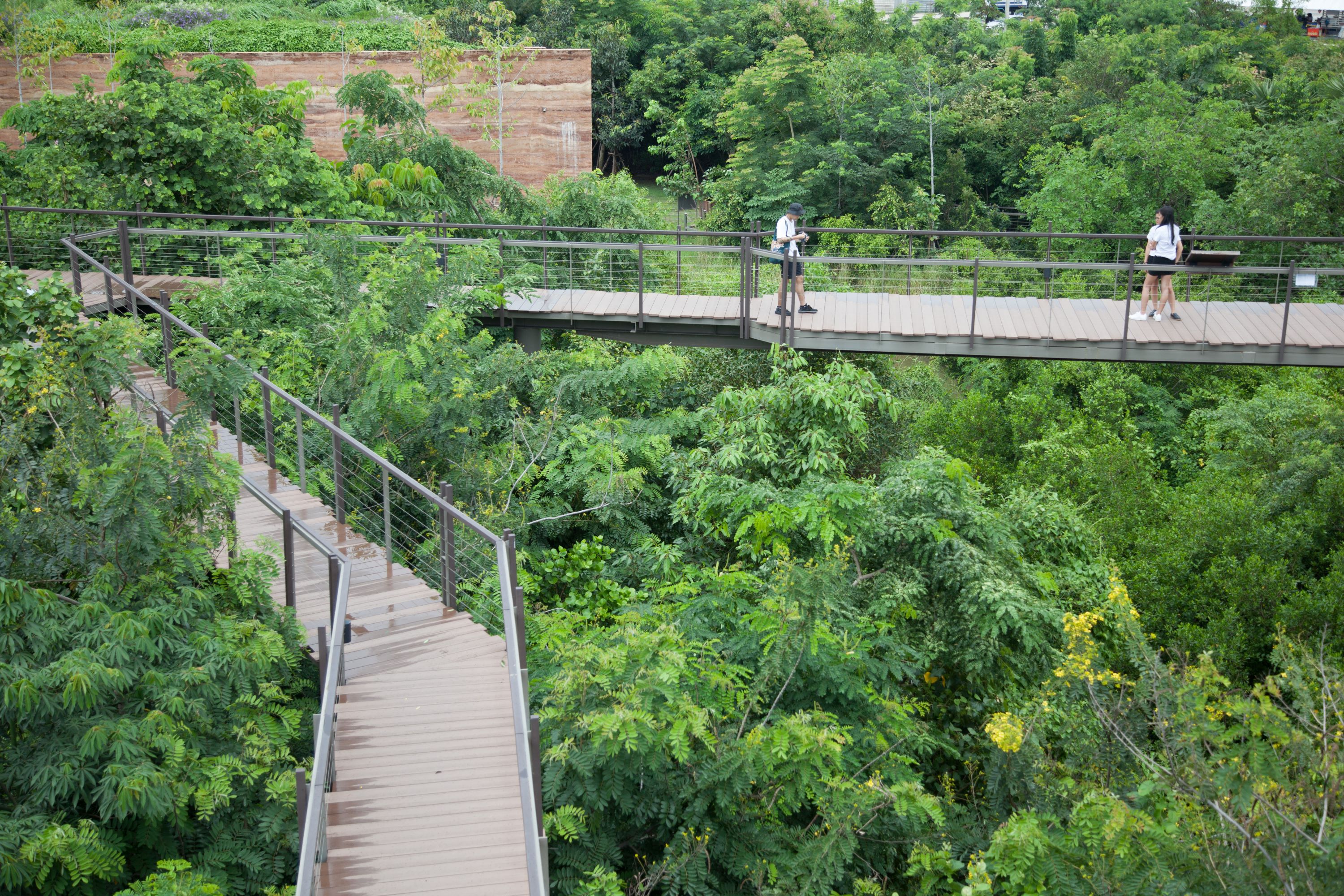
Architectural highlight
The Metro Forest in Prawat, near Suvarnabhumi Airport, is a fine attempt at bringing wild greenery back into the city. The eco-park has great high walkways and some maze-like terracotta paths to explore as you enjoy an oxygen-rich moment among the shrubs
Nuts and bolts
What currency do I need?
Thai Baht
What language do they speak?
Thai
Should I tip?
10 per cent
What’s the time difference?
GMT +7
What’s the average flight time from the UK?
11.5hrs direct
How should I get around?
The BTS SkyTrain and Metro services are cheap, safe and useful when going long distances, but it’s Bangkok’s motorcycle taxis that get you from A to B with ease. You can use apps Bolt or Grab to summon one or flag down one of the motorbike drivers wearing a red vest.
What’s the best view?
Mahanakhon Skywalk provides jaw dropping aerial views of the city if you’re happy to fork out the £5 entrance fee. You can also take in city views from the other side of the river at Wat Arun.
Insider tip?
Bangkok has a great network of canal boats that serve as a cooler and slower form of public transport. If you’re staying near a canal there’s likely a boat stop, which you’ll find marked out on Google Maps.
Getting there
Trying to fly less?
In conflict- and Covid-free times, it was possible to take the train from the UK all the way to Bangkok, but it involves going through Russia (which the Foreign Office is advising against all travel to) for the Trans-Siberian railway to China (not currently open to Brits). Getting into France by train, you could travel by cargo ship from Le Havre in France to Singapore, then take the train on to Bangkok (via Kuala Lumpur and Penang in Malaysia).
Fine with flying?
Airlines including Thai Airways, BA and EVA Air fly direct from the UK to Bangkok.
Join our commenting forum
Join thought-provoking conversations, follow other Independent readers and see their replies
Comments